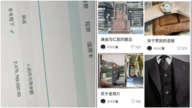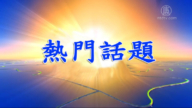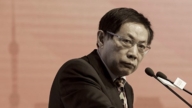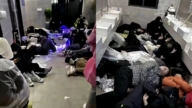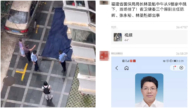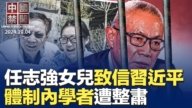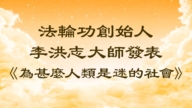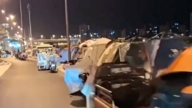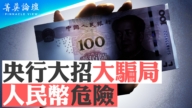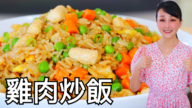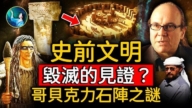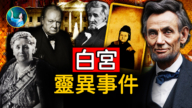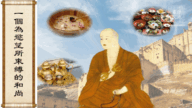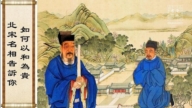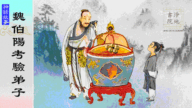【新唐人2014年11月29日訊】台灣歷史上最大的地方選舉即將登場,儘管中共「國臺辦」最近宣稱對於台灣島的內事務不加評論,但是英國《路透社》27號的一篇文章指出,國臺辦與大陸統戰部門涉入台灣選舉甚深,更將臺商視為收復台灣的橋頭堡。《路透》還詳細論述中共如何經營其他對象,企圖達到吞併台灣的目的。
《路透社》這篇題為《中國暗影機構如何兼併台灣》(How China’s shadowy agency is working to absorb Taiwan)的文章指出,中共統戰部和國家對臺辦公室,除了執行對臺貿易等政策外,也協助動員在中國工作的臺商,企圖影響台灣政治。
據了解,這些臺商對國民黨在2008和2012年贏得總統大選,起到了重要作用。國民黨內部調查顯示,2012年回臺投票的近25萬名臺商,有八成投給了馬英九。而國民黨自2008年上臺後,與中共簽署了20多項經貿協定。如今台灣外貿的40%銷往大陸,科技業更是普遍在大陸設廠。
《路透》說,中共統戰部門經營臺商的手法非常細膩,它在深圳一地就有100多間辦公室,規定用「三必訪」手段拉攏臺商,即「逢年過節必訪、紅白喜事必訪、患重病必訪」。
今年六月,深圳數百位臺商慶祝新臺商協會會長上任,前去的深圳統戰部主管李佳凡竟然說,力促台灣朋友繼續在各自領域努力,為儘快實現兩岸統一的「中國夢」做貢獻。
《路透》報導引述在深圳的台灣商會主席表示,在大陸的台灣商業社區是中共最好的公關工具。一位接近中共高層的人士則透露,中共的「目標很簡單,就是和平統一,攻心為上,攻城為下」。
但是,外界認為國民黨在首都臺北市長選舉中民調落後太多,靠大陸臺商恐怕難扭轉局面。
中華經濟研究院研究員吳惠林:「今年跟往年比較不一樣的是甚麼?因為現在很多臺商已經是吃虧了。大家也都看到了,其實短期得利的只有幾個比較大的那些商人。」
中華經濟研究院研究員吳惠林表示,在過去總統大選的時候,中共影響力是明顯的。但是隨著台灣國民意識的提升,多數中小臺商在大陸越來越艱難,中共的整體影響力明顯減弱。
吳惠林指出,在3・18台灣太陽花學運以後,大家通過反思逐漸了解到,不管是兩岸簽署甚麼協定,最後都是大企業得利。所以貧富差距越來越大,中共現在打經濟牌也是越來越行不通。
吳惠林:「最主要的是台灣內部,尤其是下一代年輕人現在越來越覺得越相對的貧窮,他們的剝奪感是非常重的。」
吳惠林表示,台灣還可能因為受到中共滲透的刺激,反而增加保衛台灣的力量。
中央研究院近代史研究所研究員、歷史學者朱浤源指出,中共不能通過臺商影響政局,而且還會越搞越亂。除了國民黨,中共也在拉攏民進黨。
《路透社》看到的統戰部檔顯示,它的努力就是最終吞併台灣。統戰部工作的範疇也不只侷限在大陸,它試圖打消台灣各界對中共的反感,最終讓他們支持兩岸統一。具體手段是,組織邀請台灣學者、退休軍人等各界人士前往大陸遊覽、參加尋根之旅等,甚至幫年輕人在大陸找實習工作。
一位台灣15歲的學生,在2013和2014年曾參加過這樣的活動,她說,在參加這類活動之前她對中國大陸有牴觸情緒,但活動之後,這種牴觸情緒逐漸消失了。她還表示她正在考慮上大學選專業時專門研究大陸。
過去的竹聯幫大老、目前身為中華統一促進黨的「白狼」張安樂,與他的政黨到大陸都由中共政府全額招待。因此,不願得罪中共的張安樂,對兩岸統一持支持態度。
不過,儘管中共滲透不斷,更多的年輕人卻對中共說「不」。今年三月學生發起的太陽花學運,就成功地阻止了大陸與台灣《兩岸服務貿易協議》的黑箱作業。
採訪/秦雪 編輯/宋風 後製/葛雷
Reuters: How The Chinese Communist Party Shadowy Agency is Working to Absorb Taiwan.
The largest local elections in Taiwan history are approaching. The Chinese Communist Party (CCP) Taiwan Affairs Office recently said it would not comment on Taiwan’s elections. However, Reuters released an article on Nov.27, which revealed how the CCP United Fronts agencies are influencing Taiwan’s elections, and how Beijing used Taiwanese businessmen as a beachhead to absorb Taiwan. The article elaborates on the CCP penetration into Taiwan via different groups of people, to achieve “reunification". Let’s look at the report below.
The title of Reuter’s article is “How China’s shadowy agency is working to absorb Taiwan". The article said, the CCP’s United Fronts Department and Taiwan Affairs Office not only implements commercial policies with Taiwan, but also works on mobilizing Taiwanese businessmen in mainland China to influence Taiwan’s politics.
Those business people helped a lot in Kuomintang’s (KMT) victories in 2008 and 2012 presidential elections. A KMT internal survey shows at least 80 percent of the250,000 Taiwanese businessmen living in China voted for Ma Ying-jeou in 2012. After KMT came to power in 2008, over 20 trade deals were signed between Taiwan and Beijing. Currently, about 40 percent of Taiwan’s exports are to China and Taiwan technology companies built factories in China.
The article said, United Fronts agencies are using crafted methods to hook in Taiwanese businessmen. It has over 100 offices in Zhejiang, and madea “three must visit" system to instruct officials on visiting Taiwan merchants. They are “must visit during traditional holidays", “must visit weddings or funerals" and “must visit when the target or his family member is seriously ill".
This June, hundreds of Taiwanese businessmen held a celebration gathering to toast the new head of local Taiwan merchants’ association in Shenzhen. Li Jiafan, director of Shenzhen’s United Fronts branch, spoke at the gathering. Li actually said, “I urge our Taiwanese friends to continue to work hard in your fields to contribute to the realization of the Chinese dream (of reunification) as soon as possible."
Reuters quoted He-tai Chen, president of the Taiwan Merchant Association in Shenzhen. Chen said, “The Taiwanese business community on the mainland was China’s best public relations tool." A source close to CCP leader group said, Beijing’s goal is simple: “Peaceful unification" and “To attack the heart is the best. To attack a [walled] city is the worst."
At the same time, many believe that KMT has fallen far behind in the mayoral election of Taipei. Even merchants returning home will probably not be able to change the result.
Wu Huilin, research fellow at Chung-Hua Institution for Economic Research, “This year the situation is different from the past. Why? Many Taiwanese merchants have suffered great losses. They see that only a few magnates can make short-term benefits in China."
Wu said, the CCP’s influence was evident in previous presidential elections. However, as Taiwanese now have an improved national consciousness, the majority of middle- or small-sized Taiwanese businesses are struggling in mainland China now. As a result, the CCP’s political influence has abated a lot.
Wu said, after the Sunflower Student Movement, many people questioned themselves and realized that only big businesses benefit from any cross-strait deals. This leads to wider gaps between rich and poor. Therefore the CCP’s economic attractiveness is no longer working well.
Wu Huilin, “The key factor lies inside Taiwan. Especially the next generation feels that they are becoming poorer and have a strong sense of having been deprived."
Wu said the CCP’s penetration might also motivate Taiwan to raise more power in protecting itself.
Chu Hong-yuan, Associate Research Fellow at Institute of Modern History, Academia Sinica of Taiwan, said the CCP is unable to control Taiwan’s politics through merchants; its efforts can only make the situation more complicated. Chu commented that, the CCP is working on both parties, the KMT and the Democratic Progressive Party.
Reuters report also reviews United Front documents, which show the CCP’s ultimate goal is to “absorb Taiwan". The report said “The United Front hasn’t confined itself to the mainland. It is targeting academics, students, war veterans, doctors and local leaders in Taiwan in an attempt to soften opposition to the CCP and ultimately build support for unification." The CCP set up programs to invite Taiwanese scholars and military veterans on visits to the mainland. They also want to help Taiwanese graduates to find internships in China.
Tsai Ting Yu, a 15-year-old Taiwanese student, joined such trips in 2013 and 2014. She said, “Before the trips, I kind of resisted the idea of China. But through the programs I got to know them better and that resistance gradually disappeared." She even said she was considering doing an undergraduate degree on the mainland.
Chang An-lo is a former leader of Bamboo Union, a triad group based in Taiwan. Chang was known as the White Wolf, as currently head of a pro-unification party. Chang said, the CCP “has provided all-expenses paid trips for members of his party to the mainland." So, Chang supported unification as “Getting carrots from China is better than getting sticks".
Despite the CCP’s efforts in penetrating into Taiwan, more youngsters on the island are saying “NO" to the CCP. The Sunflower Student Movement in March has successfully halted covert operations of enforcement of the Cross-Strait Service Trade Agreement.
Interview/QinXue Edit/SongFeng Post-production/GeLei


